Special Report
Publications
Articles, publications, books, tools and multimedia features from the U.S. Institute of Peace provide the latest news, analysis, research findings, practitioner guides and reports, all related to the conflict zones and issues that are at the center of the Institute’s work to prevent and reduce violent conflict.
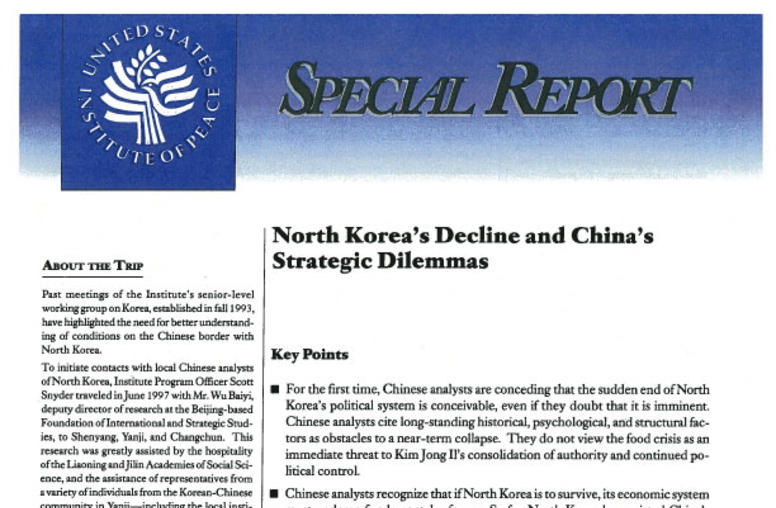
North Korea's Decline and China's Strategic Dilemmas
For the first time, Chinese analysts are conceding that the sudden end of North Korea's political system is conceivable, even if they doubt that it is imminent. Chinese analysts cite long-standing historical, psychological, and structural factors as obstacles to a near-term collapse. Chinese analysts recognize that if North Korea is to survive, its economic system must undergo fundamental reforms.
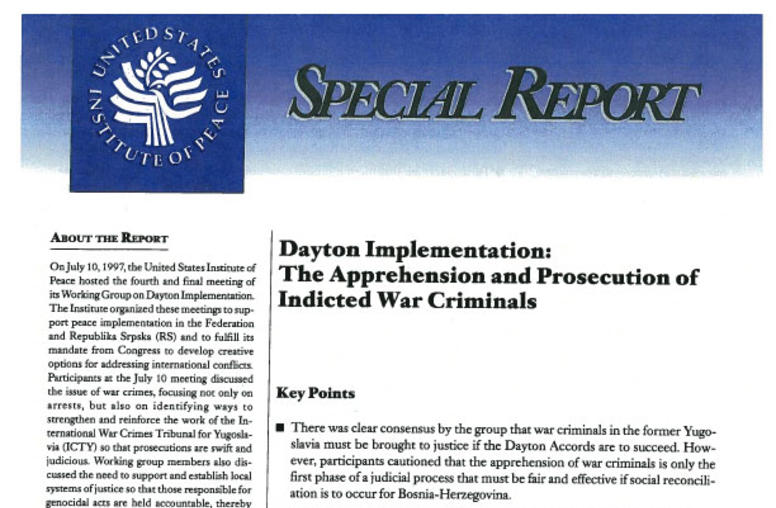
Dayton Implementation: The Apprehension and Prosecution of Indicted War Criminals
On July 10, 1997, the United States Institute of Peace hosted the fourth and final meeting of its Working Group on Dayton Implementation. The Institute organized these meetings to support peace implementation in the Federation and Republika Srpska (RS). Participants at the July 10 meeting discussed the issue of war crimes, focusing not only on arrests, but also on identifying ways to strengthen and reinforce the work of the International War Crimes Tribunal for Yugoslavia (ICTY) so that pro...
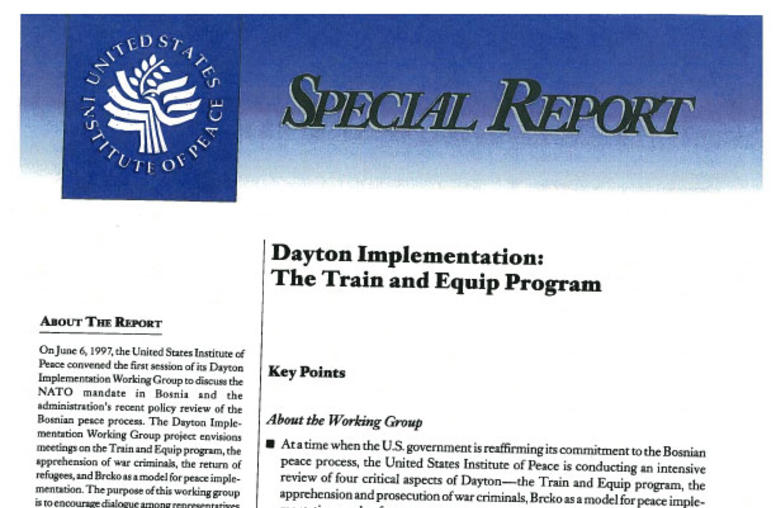
Dayton Implementation: The Train and Equip Program
The Dayton Implementation Working Group project envisions meetings on the Train and Equip program, the apprehension of war criminals, the return of refugees, and Brcko as a model for peace implementation. The purpose of this working group is to encourage dialogue among representatives from the administration and Capitol Hill and policy analysts on how best to implement these critical elements of the Dayton peace agreement
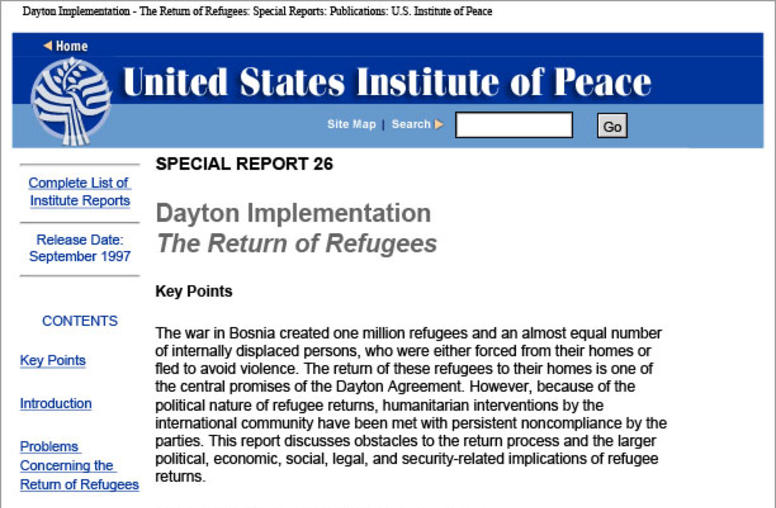
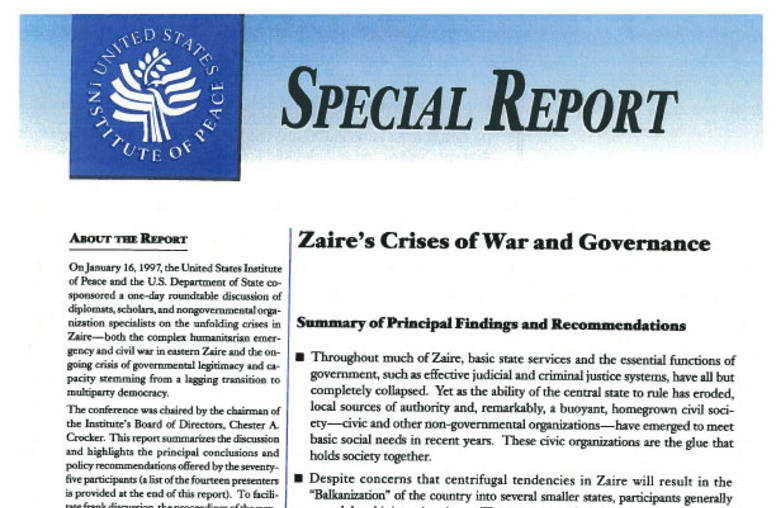
Zaire's Crises of War and Governance
On January 16, 1997, the United States Institute of Peace and the U.S. Department of State cosponsored a one-day roundtable discussion of diplomats, scholars, and nongovernmental organization specialists on the unfolding crises in Zaire-both the complex humanitarian emergency and civil war in eastern Zaire and the ongoing crisis of governmental legitimacy and capacity stemming from a lagging transition to multiparty democracy.
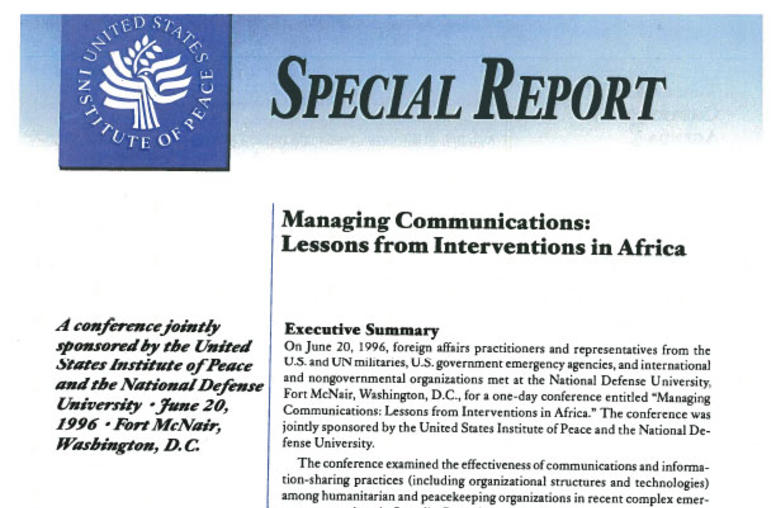
Managing Communications: Lessons from Interventions in Africa
"Managing Communications: Lessons from Interventions in Africa," the conference was jointly sponsored by the United States Institute of Peace and the National Defense University. It examined the effectiveness of communications and information-sharing practices (including organizational structures and technologies) among humanitarian and peacekeeping organizations in recent complex emergency operations in Somalia, Rwanda, and Liberia.
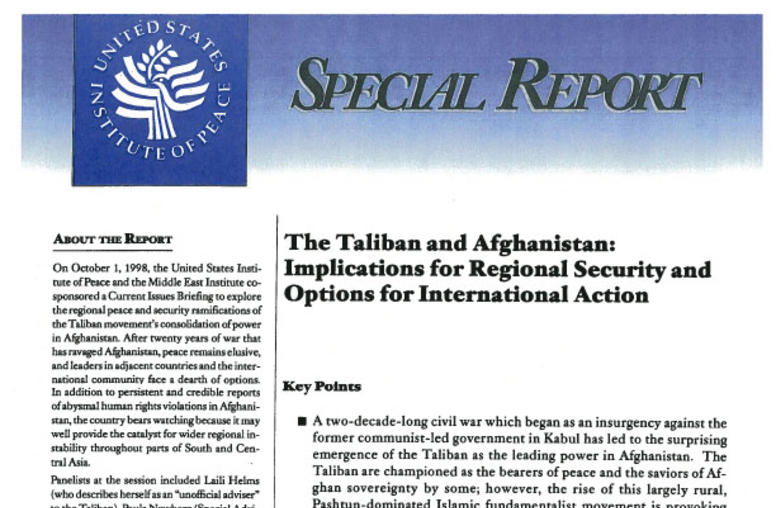
The Taliban and Afghanistan: Implications for Regional Security and Options for International Action
The United States Institute of Peace and the Middle East Institute cosponsored a Current Issues Briefing to explore the regional and security ramifications of the Taliban movement's consolidation of power in Afghanistan. After twenty years of war that has ravaged Afghanistan, peace remains elusive, and leaders in adjacent countries and the international community face a dearth of options. In addition to persistent and credible reports of abysmal human rights violations in Afghanistan, the cou...
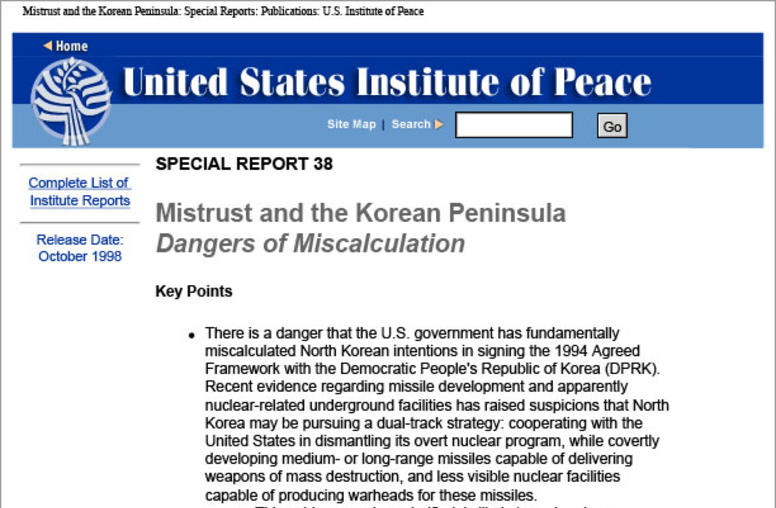
Mistrust and the Korean Peninsula: Dangers of Miscalculation
An unwillingness to challenge North Korea now with a more concerted diplomatic and deterrence policy, lest it precipitate a repeat of the 1994 crisis, risks being confronted later by a qualitatively different North Korean military threat. There is a significant danger of miscalculation: while previous North Korean induced crises have strengthened Pyongyang's negotiating leverage in general and perhaps the Korean People's Army's strong hold on power in particular, there is a serious risk that ...
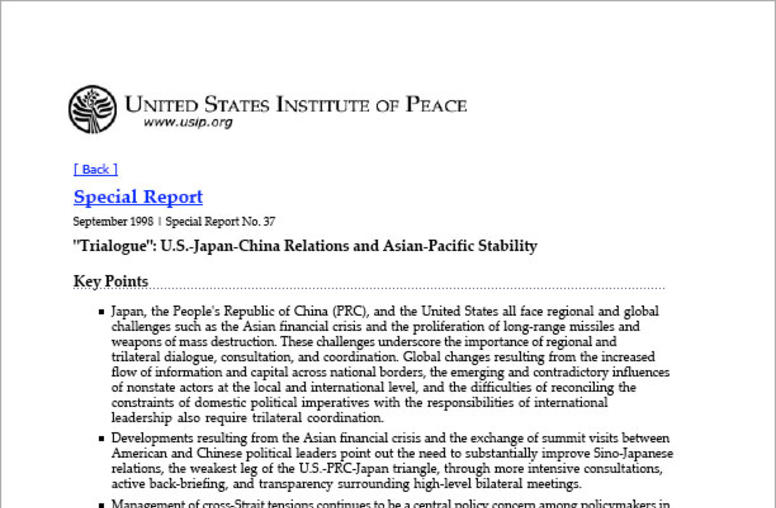
"Trialogue": U.S.-Japan-China Relations and Asian-Pacific Stability
The exchange of summits between the leaders of the People's Republic of China and the United States, the Asian financial crisis, and the decision by India and Pakistan to engage in nuclear testing have redirected the security agenda of the Asia-Pacific region. Such developments underscore the ongoing difficulties inherent in the transition from traditional approaches to security defined by the Cold War to a post-Cold War structure of international relations in the Asia-Pacific.
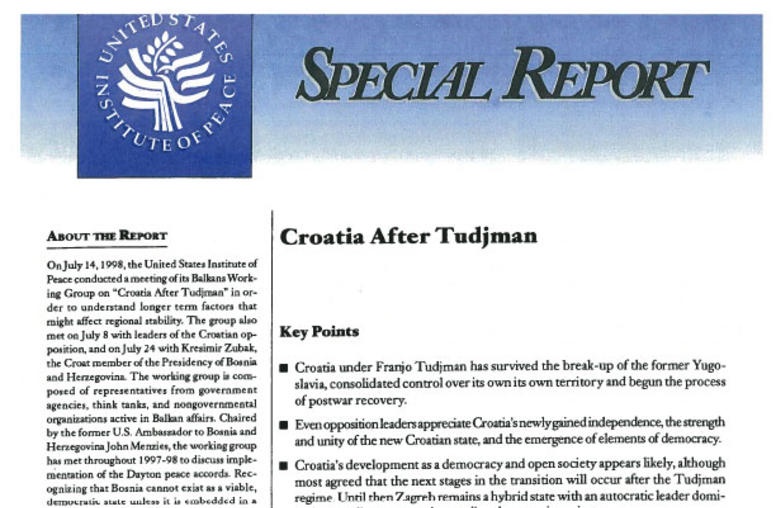
Croatia After Tudjman
Recognizing that Bosnia cannot exist as a viable, democratic state unless it is embedded in a region that is itself stable and democratic, the Institute has begun a Bosnia in the Balkans Initiative to explore the prospects for regional political and economic development. The Balkans Working Group on "Croatia After Tudjman" met in order to understand longer term factors that might affect regional stability. The recent meeting on Croatia is one component of this work, which has included separ...